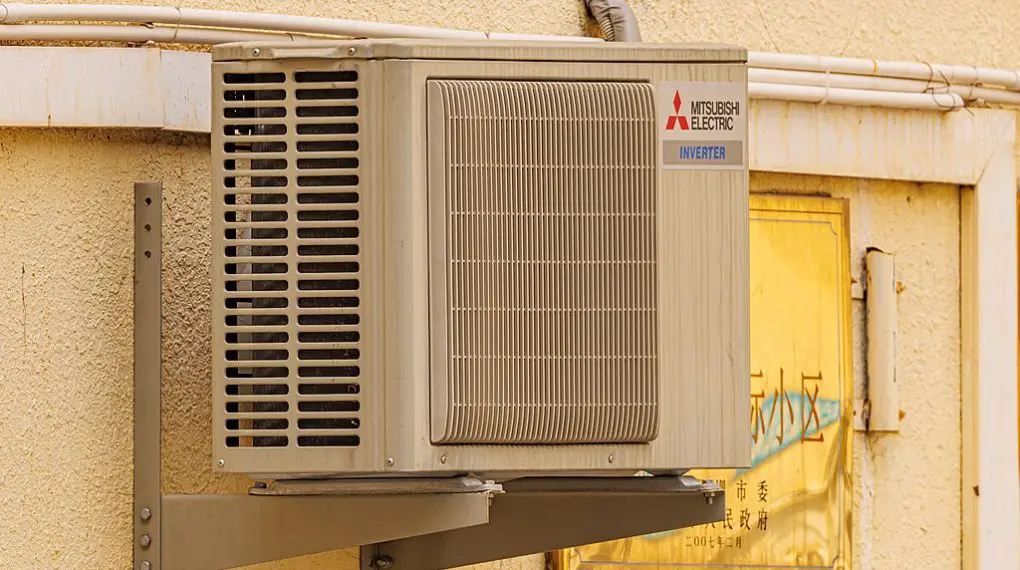It’s one of those hot days, and you’re relying on your AC to provide some relief. But there’s a hiccup—your AC compressor kicks on and off. This scenario is more common than you’d think, with many experiencing this issue with both car and home air conditioning units. But why does this happen? We’re going to cover it all, so hang tight.

Table of Contents
Understanding Why AC Compressor Kicks On and Off
When your AC compressor kicks on and off in a seemingly erratic manner, it’s known as AC compressor cycling. Imagine an impatient child on a playground swing, back and forth, with no rhythm or routine. That’s your AC unit when it’s cycling—lacking the smooth, consistent operation that we’d ideally want.
Importance of Consistent AC Compressor Operation
Without a steady operation, your AC unit can struggle to maintain a consistent temperature. Imagine trying to run a marathon by sprinting and stopping intermittently; you’d be exhausted and inefficient. Consistent operation is key for your AC compressor to efficiently cool your home or car.
Quick Summary of Reasons for AC Compressor Cycling
AC compressor cycling can stem from a few different issues. It might be due to low refrigerant levels, a sign of a potential leak. Or it could be caused by electrical issues—much like a flickering light if the power isn’t stable, your AC compressor won’t be either. Alternatively, overheating issues could be at play. But don’t worry, we’re about to break down each of these causes in detail.
Detailed Examination: Car AC Compressor Kicks On and Off
Reasons Why Car AC Compressor Kicks On and Off
Insufficient Refrigerant
One common cause is insufficient refrigerant. You see, the AC compressor requires a certain level of refrigerant to function correctly. It’s a bit like trying to drive a car without enough fuel. If there’s not enough refrigerant, the compressor may kick on and off, struggling to maintain its operation.
Overheating Issues
Overheating is another common culprit. When your car’s AC compressor is overworked, it can overheat, leading to it kicking on and off to try and cool down. It’s similar to a runner taking breaks to catch their breath during a strenuous race.
Electrical Problems
Electrical problems can also lead to AC compressor cycling. Remember how we mentioned the AC compressor was like the heart of your AC system? Well, think of electricity as the life-giving oxygen. If there are electrical problems, your ‘heart’ may struggle to keep beating consistently.
Identifying Signs of Car AC Compressor Cycling Issues
Observing Rapid Kicking On and Off
If your AC compressor kicks on and off rapidly, it’s a tell-tale sign something’s amiss. Remember the impatient child on the swing? That’s what we’re talking about. It should be a smooth, consistent operation—not a sporadic burst of activity.
Noticing Inconsistent Cooling Performance
Another sign to watch out for is inconsistent cooling. It’s a bit like having a shower where the water keeps changing between hot and cold—you wouldn’t enjoy that, right? The same goes for your AC. If it’s not maintaining a consistent temperature, you could be dealing with AC compressor cycling.
Check out these other related articles…
AC Compressor Explosion: Guide to Understanding & Prevention
AC Compressor Size: Your Guide to Getting it Right
AC Compressor Installation: A Comprehensive and Easy Guide
Problems with AC Compressor: Your Ultimate Guide
No Power to AC Compressor: Your In-Depth Guide
Detailed Examination: Home AC Compressor Kicks On and Off
Reasons Why Home AC Compressor Kicks On and Off
Low Refrigerant Level
One culprit behind home AC compressor cycling could be a low refrigerant level. Just as a coffee machine can’t make a cup of joe without enough water, your AC compressor can’t function properly without enough refrigerant.
Condenser Coil Problems
Condenser coil problems can also cause AC compressor cycling. If your coils are dirty or damaged, it’s like having a blocked highway—the refrigerant can’t flow smoothly. This leads to inefficiency and could cause your compressor to kick on and off.
Electrical Faults
Electrical faults can also lead to AC compressor cycling. Imagine trying to watch a movie with intermittent power cuts—not the best experience, right? If your AC unit is experiencing power issues, the compressor can behave in the same frustratingly inconsistent manner.
Identifying Signs of Home AC Compressor Cycling Issues
Recognizing Rapid Cycling
Rapid cycling is a clear sign something’s up. If your AC unit is kicking on and off like a temperamental computer, it’s likely you’re experiencing compressor cycling.
Experiencing Unstable Indoor Temperature
If your indoor temperature feels like a rollercoaster—up, down, up, down—it could be another sign of AC compressor cycling. Remember, consistency is key when it comes to maintaining a comfortable temperature.
How to Respond When AC Compressor Cycles On and Off
We’ll reveal the immediate steps you can take when your AC compressor kicks on and off as well as when you need to call in the pros.
Immediate Steps to Take
Checking the Refrigerant Level
If you’re experiencing AC compressor cycling, the first thing you should do is check the refrigerant level. It’s like checking the fuel gauge when your car starts acting funny—low levels could be the cause of the problem.
Inspecting Electrical Connections
Inspecting electrical connections is another good first step. If there’s a loose wire or a faulty connection, it’s like trying to drink a milkshake with a hole in the straw—you’re not going to get consistent results.
When to Call a Professional
Persistent AC Compressor Cycling Issues
If you’ve tried the above steps and your AC compressor is still cycling, it’s time to call in the pros. Sometimes, like a stubborn knot in a shoelace, the problem just needs an expert hand.
Complex Technical Problems
Similarly, if you suspect the problem is more complex—like a problem with the condenser coils or motor—it’s best to leave it to the professionals. We wouldn’t recommend doing your own dental work, and the same goes for complex AC repairs.